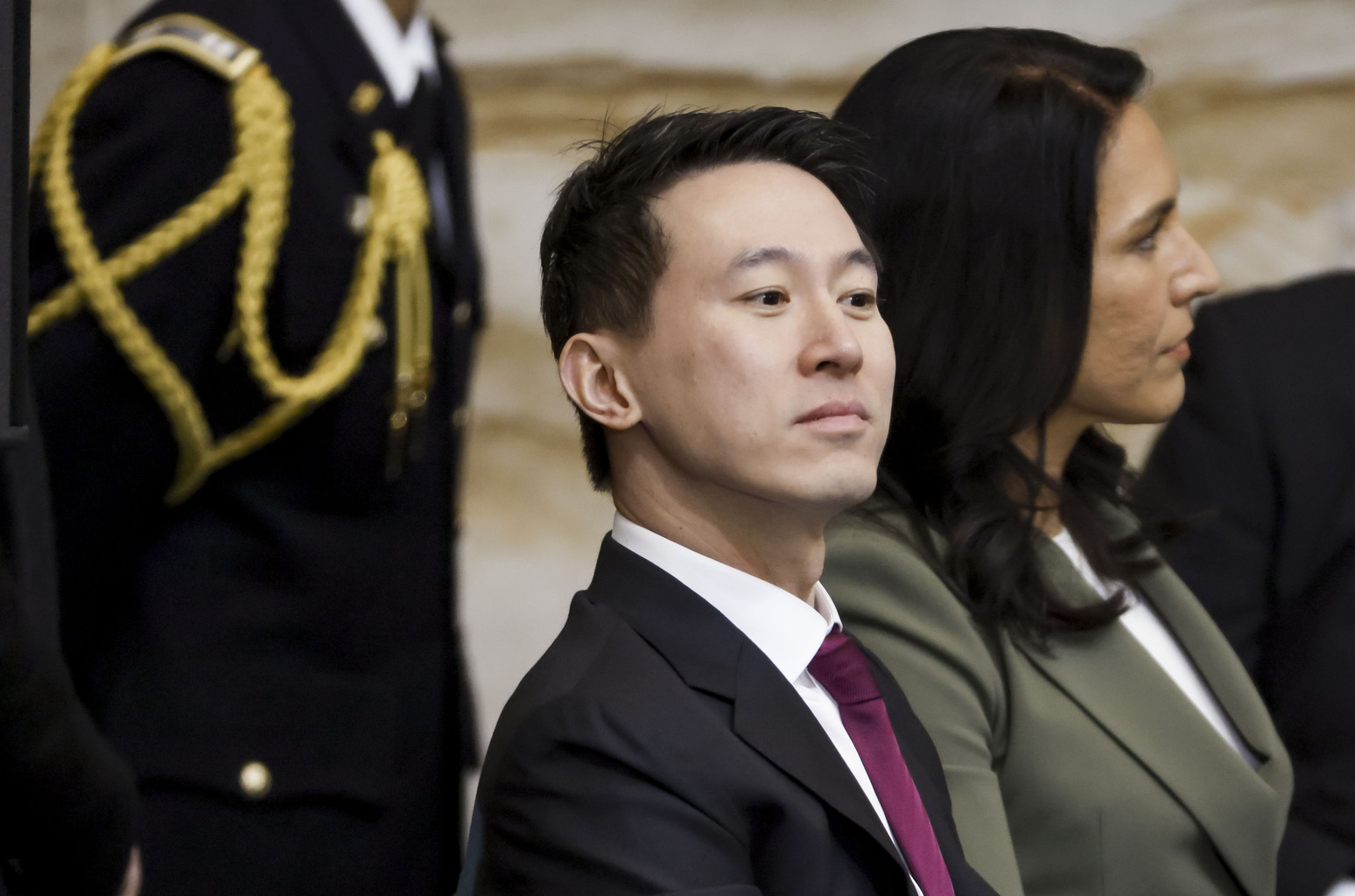TikTok to fire all Canadian staff without federal response, CEO warns
TikTok’s leadership is making a final appeal to the Canadian government as the platform prepares for a mandated shutdown amid national security concerns. CEO Shou Zi Chew has requested an immediate in-person meeting with federal officials, warning of imminent layoffs, halted creator support, and a major disruption to Canada's digital economy.
Shou Zi Chew (C), the CEO of TikTok, attends the United States Capitol on January 20, 2025 in Washington, DC. Donald Trump takes office for his second term as the 47th President of the United States.
Shawn Thew-Pool/Getty Images
The appeal follows a federal directive issued in November, ordering TikTok to cease its Canadian operations due to alleged security risks tied to its Chinese parent company, ByteDance. Although the platform has contested the shutdown, it has already begun scaling back activities. Last week, TikTok Canada paused its arts sponsorships, signaling the early effects of the government’s decision.
Steve de Eyre, Director of Government Affairs for TikTok Canada, emphasized the urgency in recent remarks to Bloomberg, noting that the window for dialogue is closing quickly. The company has yet to receive a formal timeline but continues to seek engagement before irreversible steps are taken.
In a letter dated July 2 and addressed to Mélanie Joly, Minister of Innovation, Science and Industry, Chew underlined the high stakes. He warned that without intervention, TikTok would be forced to terminate its Canadian workforce and freeze all investments in local creators. The company employs approximately 350 staff across Toronto and Vancouver and has contributed over $340 million in taxes from 2019 to 2024.
The letter also criticized the absence of governmental response, noting that the original shutdown order was issued under a previous administration. Chew contended that no concrete evidence has been provided to substantiate claims that TikTok poses a direct threat to national security. Instead, he called the government’s decision an outdated move based on media speculation and unverified allegations.
Chew’s message urged policymakers to reconsider through collaborative dialogue. He proposed robust data security and platform transparency initiatives, aimed at aligning TikTok’s operations with Canada’s national standards for online safety, election integrity, and foreign interference prevention.
Despite the urgency, the two-week window Chew offered for a meeting has passed without a confirmed response from Minister Joly. The uncertainty surrounding the platform’s future has already affected staffing, with several employees seeking opportunities elsewhere and new hiring frozen due to legal constraints.
This Canadian standoff mirrors global challenges faced by TikTok in jurisdictions wary of its Chinese ownership. In the U.K., the company retained an independent firm to audit its data practices. In the U.S., regulatory pressure resulted in a delayed shutdown order, but a new buyer has since been announced under former President Donald Trump’s direction.
De Eyre maintains that the Canadian government’s approach undermines its own ability to oversee the platform. By pushing TikTok out, he argues, Canada risks losing jurisdictional control and direct accountability from a locally established entity.










